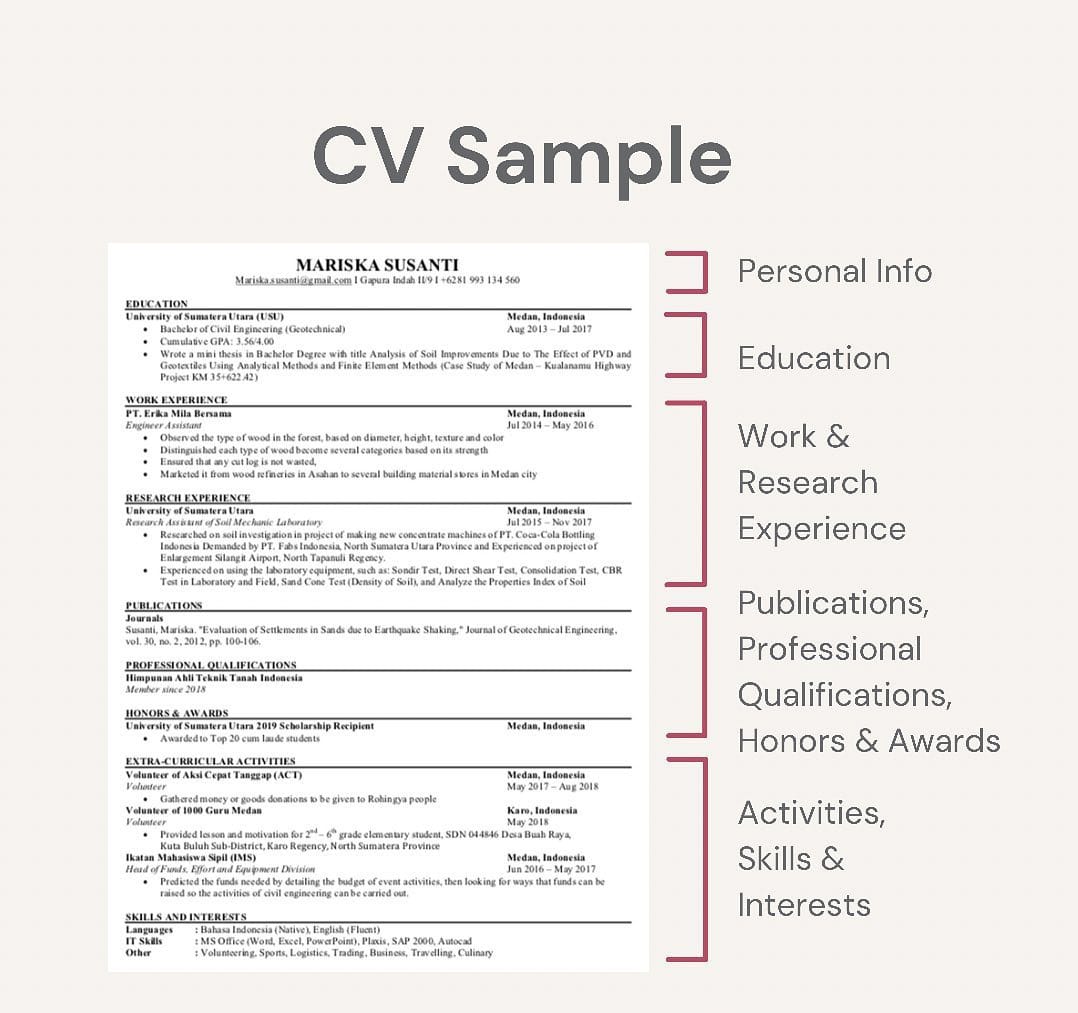To Write a good CV, here are some CV writing tips that will help you land your dream:
- Make it unique
Don’t have a CV that’s too long. 1-2 pages will do just fine however this is dependent on the amount of experience you have. Space out all the information so that your CV is not clustered. Having a colorful CV and a picture doesn’t make your CV good. It’s the content that does.
- BIO
Have a strong personal statement/summary that tells the recruiter a bit about yourself and also positions you as something. So many people fall into the trap of listing skills in their bio, that they forget to tell the recruiters a little bit about themselves.
- SKILLS
When listing skills in your CV, make sure you have 3 types of skills listed. Have a balance between your transferable/functional skills, (e.g analytical skills), personal traits/attributes (e.g patience), and knowledge-based skills (e.g accounting).
- WORK EXPERIENCE
When listing your work experience, keep your job descriptions brief and straight to the point highlighting what your role was. Make sure you have your job title and the years you worked at a specific job. Always use action verbs when listing your work experience.
- Education
Avoid listing every subject or module from your school or university. Instead, focus on:
– The institutions you attended
– The qualifications you earned
– A brief summary of what each qualification equips you with
You can refer to the prospectus if you need assistance with summarizing your qualifications.
- THE NITTY GRITTY
Proofreading is so important. Make sure you pay attention to detail. Check your spelling, grammar, and punctuation. Ensure everything is consistent including your Fonts. Also, make sure that your CV isn’t too clustered and is easy on the eye.
- THINGS TO AVOID
– Using generic cliches like “passionate, self-motivated, dedicated”
– Not tailoring your CV for each job application. Your CV is not a one-size-fits-all
– Not using keywords related to the vacancy
– Excessive word repetition
– Having a super long CV
- Always tell the truth
Do not lie in your CV to get the job because your lies will catch up with you. However, do not sell yourself short. Don’t be afraid to show that you are the right person for the job.
- Your CV is like a sales document
It sells who you are and what you can do. It’s a valuable asset for opening doors of possibility. So put in the effort, it really goes a long way, and remember that the first impression lasts. Present yourself correctly.
- 12 components to include in your CV
- Contact Information
This includes your full name, phone number, email address, and possibly a professional online profile like LinkedIn. Avoid including sensitive information like your social security number, passport number, account number.
- Objective Statement or Professional Summary
This is a brief statement that outlines your career goals and why you would be a good fit for the position. A professional summary can be used instead of an objective, to showcase your skills, accomplishments, and experience.
- Skills
This section should be tailored to the job you’re applying for. Highlight both your hard skills (e.g., proficiency in a foreign language or computer software) and soft skills (e.g., problem-solving or teamwork).
- Work Experience
Start with your most recent job and work backwards. Include the company name, your title, the dates you were employed, and a brief summary of your duties and achievements.
- Education
Like the work experience section, start with your most recent education experience and work backwards. Include the institution name, your degree, your field of study, and the dates you attended. If you’re a recent graduate, you may also include your GPA if it’s strong.
- Certifications and Licenses
If you’ve earned any relevant certifications or licenses, include them in this section.
- Achievements and Awards
If you have any notable achievements or awards from your career or education, they can be listed in this section.
- Volunteer Work
Many employers value community involvement, so include any volunteer work, especially if it’s related to your field.
- Professional Affiliations
Include any professional organizations that you’re a member of. This can demonstrate your commitment to your field.
- References
While it’s not necessary to list your references on your CV, it’s often helpful to include a statement such as “References available upon request.”
- Publications or Presentations
If you’ve been published in a professional journal, or given a presentation at a conference, include the details here.
- Personal Interests (optional)
Some people choose to include a section on their interests and hobbies. This can give potential employers a sense of your personality and what you might bring to the team. However, keep it professional and relevant.
Those are are some CV writing tips that will help you land your dream. Remember, your CV is often your first opportunity to make an impression on a potential employer, so make sure it’s well-written, well-organized, and free of errors.
 Jobsscholar Jobs Search | Education Hub | Scholars Portal
Jobsscholar Jobs Search | Education Hub | Scholars Portal
